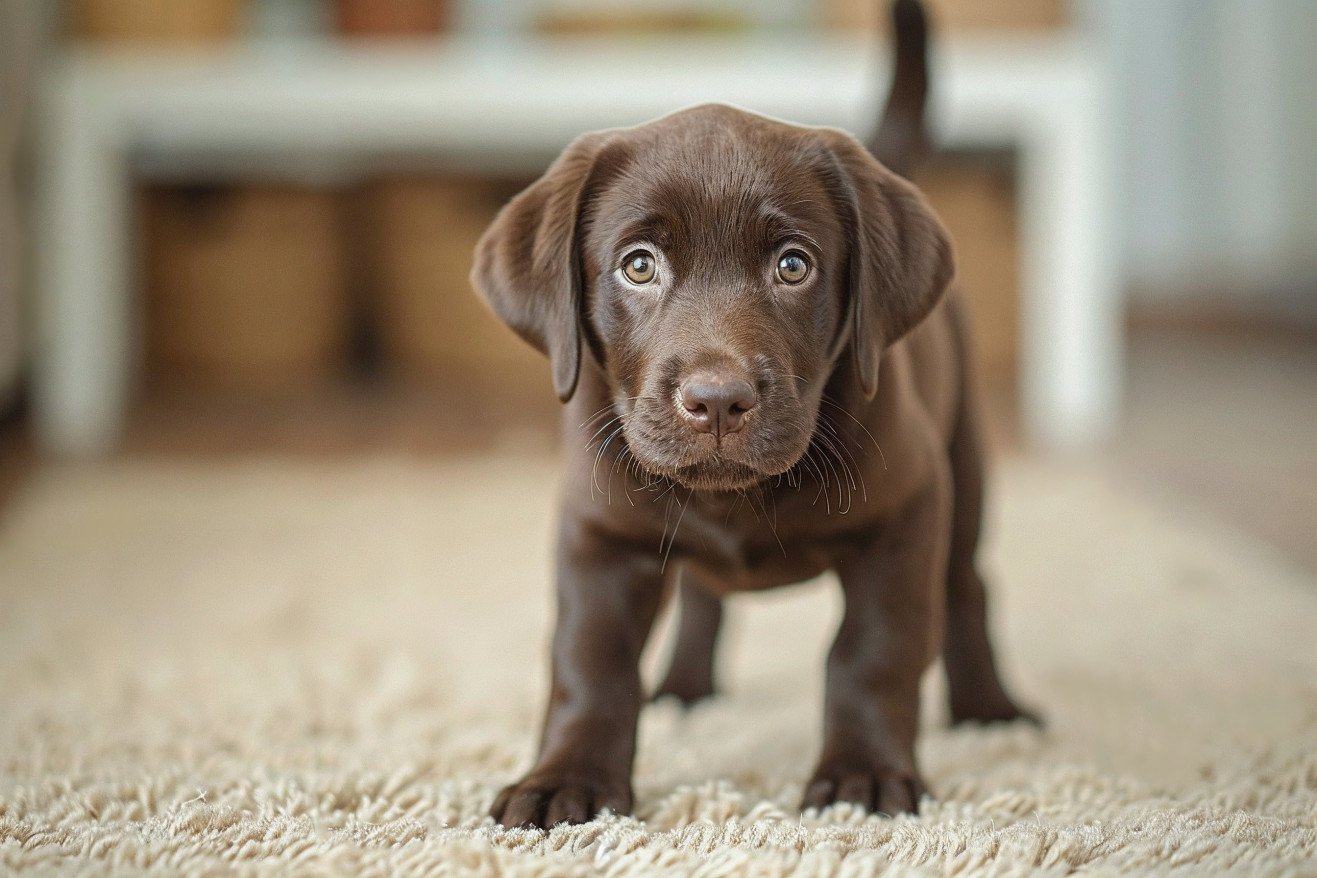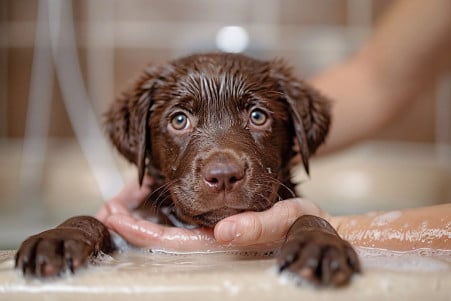How Long Does It Take for Puppies to Walk? The Phases of Puppy Mobility Development
16 May 2024 • Updated 15 May 2024

While it's always exciting to see your new puppy take their first steps, you may be wondering when exactly puppies start walking. Puppies usually start to walk between 2-4 weeks of age. At birth, their leg muscles aren't strong enough to hold them up. By the time they're 2-4 weeks old, their muscles have developed enough for them to take their first tentative steps and walk confidently by 3-4 weeks.
As newborn puppies grow and develop their physical skills in their first month of life, we'll cover the scientific research on motor skills, coordination, muscle development, and other elements that impact when puppies become mobile. By looking at studies in veterinary medicine and developmental psychology, you'll learn about the typical timeline and phases of this important developmental milestone that paves the way for puppies to run, jump, and play.
When do puppies start walking?
Puppy Developmental Periods and Milestones
The first 2 weeks of a puppy's life are characterized by a lack of mobility and senses. Puppies are born blind, deaf, and without a sense of smell, and they spend most of their time sleeping during this time, according to the American Kennel Club.
Between 2-4 weeks, puppies' eyes and ears open, which enables their sense of sight, hearing, and smell to develop, says Care.com. This is also when puppies start to crawl. Between 4-6 weeks, puppies work on improving their ability to walk and their coordination, while also starting to become more curious about the world around them.
By 8 weeks, most puppies are able to run and play with ease, although they won't be fully physically mature until they are between 12 and 24 months old, depending on their size. Larger dogs tend to mature more slowly, so people with larger breeds will need to wait longer before they can engage in more intense play and exercise. Making sure that puppies are getting the right kind of stimulation and exercise for their developmental period is important for ensuring that they grow up healthy.
Things That Impact When Puppies Learn to Walk
The size of the breed is one of the most important factors that determine when puppies will learn to walk, with larger breeds tending to take longer to develop. Rover.com says that while most puppies will start to walk between 2-4 weeks old, larger breed puppies will take longer to get there. A puppy's nutrition and environment can also impact how quickly they grow, as The Spruce Pets points out.
Genetic issues, like congenital conditions, can also delay a puppy's ability to walk, so the Regina Humane Society says that if a puppy isn't walking when you think they should, you should talk to a vet. A puppy's ability to walk is also helped along by their mother and littermates, as they will learn by watching and playing with each other. While there are general timeframes, every puppy will develop at their own rate, so it's important to monitor them closely and seek professional help when needed.
How to Exercise and Socialize Puppies During Development
Puppies should be kept away from other dogs and from public places until they have received all of their vaccinations at 16-18 weeks, says Blue Cross. However, you can still engage in plenty of indoor activities and socialization to help them grow and develop. The American Kennel Club even says that this is a good time to introduce your puppy to a collar or harness and a leash, and to use positive reinforcement to teach them how to walk on a leash.
After your puppy has received all of their vaccinations, you can start taking them on short, controlled walks outside, gradually increasing the length of the walks as they get older. Release the Hounds recommends a good rule of thumb is to walk them for 5 minutes per month of age, twice a day. This will help prevent you from overexerting their developing joints and bones. It's also important to avoid activities like jogging and agility training until they are physically mature, according to Blue Cross.
When Can Puppies Run and Do More Intense Exercise?
Most puppies can start running at 8 months of age, but according to Vetstreet, large and giant breed puppies may need to wait until they are 12-18 months old due to the slower maturation of their growth plates. However, you should always check with your vet because the breed and the individual dog can make a difference in when they can start more intense exercise.
Once you get the go-ahead, My GBGV Life suggests starting with shorter runs and gradually increasing the distance to build up your dog's stamina. This is important because running is a high-impact exercise that can be hard on a dog's joints. In addition, Long Haul Trekkers recommends increasing your dog's mileage no more than 10% per week to give their body time to adjust.
Monitoring Puppy Development and When to Seek Help
While the stages of puppy development are pretty predictable, it’s important to remember that each puppy will develop at their own pace. So, while you’re monitoring your puppy’s progress, be sure to look for physical and behavioral signs that your puppy is hitting important mobility milestones.
If you’re worried about delayed development or if you notice anything that seems off about the way your puppy is walking, running, or moving in general, it’s important to talk to your vet. They can help you figure out what’s going on and offer personalized advice to help your puppy.
In addition to working with your vet, consider enrolling your puppy in a puppy socialization class. These classes can help your puppy develop confidence, coordination, and important life skills through positive interactions with other dogs and people.
By monitoring your puppy’s development and working with professionals, you can help ensure that your puppy has a successful puppyhood and grows into a happy, healthy, and active dog.


